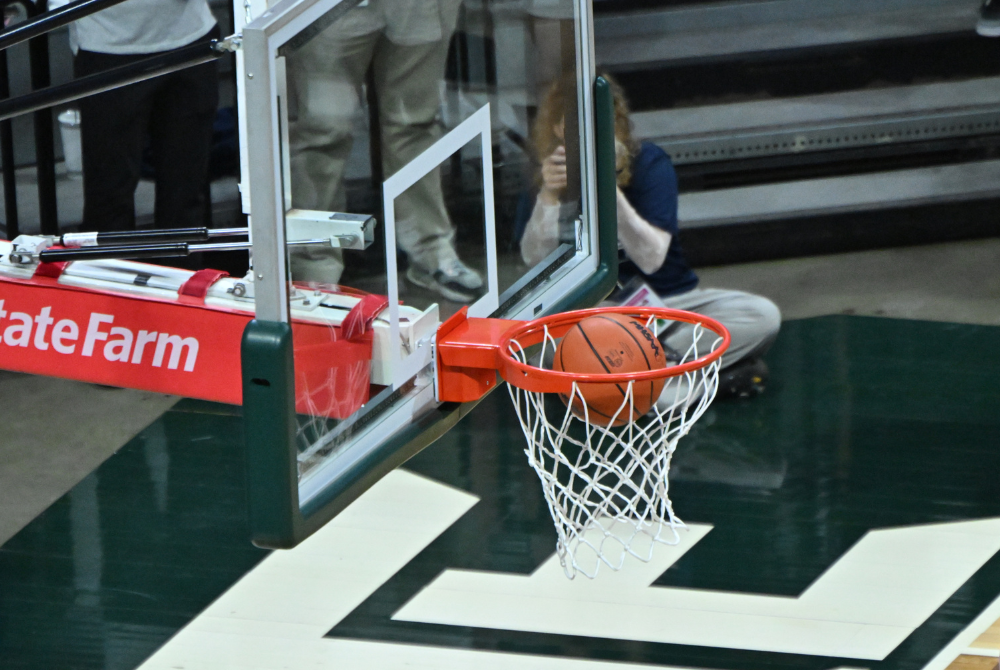
Be the Referee: National Rules Process
February 8, 2018
In this week's edition, assistant director Mark Uyl explains the process by which national playing rules are made and changed.
Be The Referee is a series of short messages designed to help educate people on the rules of different sports, to help them better understand the art of officiating, and to recruit officials.
Below is this week's segment – National Playing Rules Process - Listen
Many times the MHSAA gets asked the question in each sport – how are the national playing rules written?
The MHSAA is a part of the National Federation of State High School Associations. The NFHS, an organization based out of Indianapolis, works to write the playing rules in all sports sponsored by the MHSAA.
The primary focus of all National Federation playing rules is on the health and safety of those playing the game. For suggestions each year, states all across the country can submit proposals for change, and then through the voting process, rules get approved for the following season.
Past editions
February 1: Calling Intentional Fouls - Listen
January 25: Points at the Edge of the Mat - Listen
January 18: Behavior Warning - Listen
January 11: Ice Hockey Safe & Sound - Listen
January 4: Why No Shot Clock - Listen
December 21: Coaches Responsible for Equipment - Listen
December 14: Mentoring New Officials - Listen
December 7: Dive on the Floor - Listen
November 30: Wrestling Weight Monitoring - Listen
November 23: Ejections - Listen
November 16: Toughest Call - Listen
November 9: Hurdling - Listen
November 2: The Survey Says - Listen
October 26: Helmet Comes Off - Listen
October 19: Goal Line Rules - Listen
October 12: No 1st-Year Fee - Listen
October 5: Athletic Empty Nesters - Listen
September 28: Misunderstood Football Rules: Kicking - Listen
September 21: Preparation for Officials - Listen
September 14: Always Stay Registered - Listen
September 7: Other Football Rules Changes - Listen
August 31: Pop-Up Onside Kicks - Listen
August 24: Blindside Blocks - Listen

Be the Referee: Faking Being Fouled
By
Paige Winne
MHSAA Marketing & Social Media Coordinator
February 10, 2026
Be The Referee is a series of short messages designed to help educate people on the rules of different sports, to help them better understand the art of officiating, and to recruit officials.
Below is this week's segment – Faking Being Fouled - Listen
In the second quarter, a basketball player drives into the lane and snaps their head backward to simulate contact from a defender — but no contact occurs. The lead official immediately recognizes the “head bob,” sounds the whistle, and issues a team warning for faking being fouled. The offense keeps the ball for a throw-in at the spot nearest the infraction.
Later in the game, the same player attempts a jump shot and falls backward after releasing the ball to again simulate contact. The official stops play. The shot is successful, so the basket counts. However, because the same team already received a warning, a team technical foul is assessed. The defense is awarded two free throws and possession at the division line opposite the table.
Previous 2025-26 editions
Feb. 3: Bowling Pins - Listen
Jan. 27: Ski Gates - Listen
Jan. 20: Cheer Judges - Listen
Jan. 13: Basketball Over the Back - Listen
Jan. 6: Bowling Ball Bounces Out of Gutter - Listen
Dec. 9: Puck on Goal Netting - Listen
Dec. 2: Goaltending vs. Basket Interference - Listen
Nov. 25: Football Finals Instant Replay - Listen
Nov. 18: Volleyball Libero Uniforms - Listen
Nov. 11: Illegal Substitution/Participation - Listen
Nov. 4: Losing a Shoe - Listen
Oct. 28: Unusual Soccer Goals - Listen
Oct. 21: Field Hockey Penalty Stroke - Listen
Oct. 14: Tennis Double Hit - Listen
Oct. 7: Safety in Football - Listen
Sept. 30: Field Hockey Substitution - Listen
Sept 23: Multiple Contacts in Volleyball - Listen
Sept. 16: Soccer Penalty Kick - Listen
Sept. 9: Forward Fumble - Listen
Sept. 2: Field Hockey Basics - Listen
Aug. 26: Golf Ball Bounces Out - Listen

